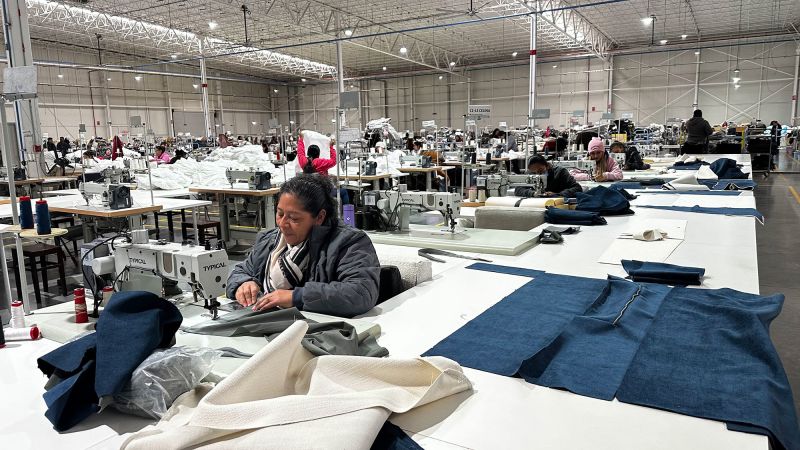
An industrial Chinatown near the US southern border readies its options should Trump tariffs come
CNN
Chinese companies moved production to Mexico to have tariff-free access to the US market under the USMCA trade deal. With President-elect Donald Trump now threatening tariffs, these companies and their Mexican hosts are planning their options if the trade restrictions come.
The huge industrial park sprawls across the rural landscape with row upon row of warehouse-sized manufacturing units. Logos and signs plastered with red and gold — lucky colors in Chinese tradition — brighten the otherwise gray exteriors while aromas of Peking duck come from an on-site canteen. But this development is thousands of miles from Beijing or Shanghai — and just a few hours’ drive from the Texas border, in northern Mexico. With street signs in both Chinese and Spanish and the flag of the People’s Republic flying high alongside that of Mexico, this is one of many “industrial Chinatowns” that have been created in recent years around Monterrey, turning farmland to factories and boosting the local and national economies. Much of the growth owes to the phenomenon of “nearshoring” — Chinese companies moving production to Mexico to have tariff-free access to the US market under the USMCA trade deal. President-elect Donald Trump negotiated that deal with Mexico and Canada in his first administration but is now threatening tariffs on Mexico and other countries and an “External Revenue Service” to collect dues. With days until the beginning of Trump’s second term, these companies and their Mexican hosts are now planning their options if the trade restrictions come. Matt Harrison, president of Kuka Home North America, which has a furniture manufacturing base in Monterrey, fears the future could be bleak. “Simply put, 25% tariff on Mexico puts me out of business,” Harrison said, “We’re waiting to see what happens when Trump moves into office — if we can continue to grow or not.”













